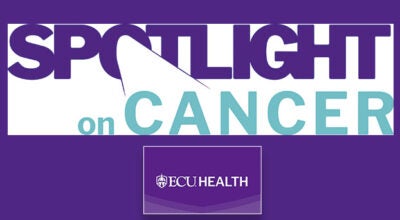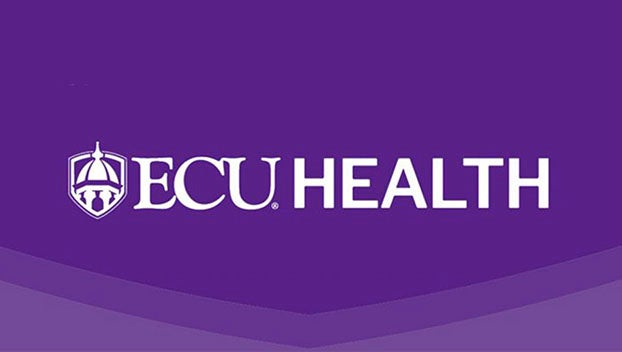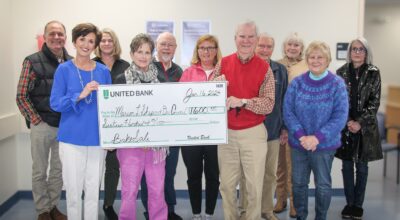Health Beat: Learn an acronym that saves lives
Published 2:05 pm Monday, August 2, 2021

- Bridgette Story is the stroke coordinator at Vidant Beaufort Hospital.
|
Getting your Trinity Audio player ready...
|
Strokes. They’re feared, deadly and debilitating.
Our state is considered the buckle of the “stroke belt,” which includes several states in the southeast part of the country where stroke death rates are two times higher than the rest of the country. As far as statistics are concerned, you’re more likely to have a stroke if you live in the south. North Carolina is about 8% worse for stroke mortality than the rest of the nation and in eastern North Carolina it is even a bigger risk. In fact, stroke is the third-leading cause of death in North Carolina. It results in more serious long-term disabilities than any other disease.
Fortunately, up to 80% of strokes may be preventable. Researchers believe that greater-than-average rates of obesity, cigarette smoking and high blood pressure account for the increased risk of death in the “stroke belt.” The American Stroke Association recommends following “Life’s Simple 7” to achieve ideal health and prevent a stroke:
· Don’t smoke
· Be physically active
· Maintain a healthy body weight
· Maintain a healthy diet
· Control cholesterol
· Control blood pressure
· Reduce blood sugar
These seven healthy habits could save your life. Get moving, eat a healthy diet, and work with your health care team to control health conditions that raise your risk for stroke. There are also some other risk factors that you cannot control:
· Age: Greater than 65 is at a higher risk, although strokes can happen at any age
· Family history
· Race: African Americans have a much higher risk of death from a stroke.
· Gender: Women have more strokes than men
· Prior Stroke, TIA (a warning sign or “mini-stroke”), A-Fib or Heart Attack
· Sickle Cell Disease
So, what is a stroke? It is when a blood vessel to a part of the brain becomes clogged or bursts. When this occurs, the nerve cells in that part of the brain can no longer work the right way. Every part of your brain controls a specific part of your body. The part of your brain that is affected by the blockage or bleeding will determine what deficits appear.
Watching someone you love having a stroke – or having one yourself – can be frightening. Whether or not you’re sure that you or someone else is having a stroke, seek medical help immediately. Have you ever heard “better safe than sorry?” Medical professionals often say they’d rather have you come in and find out it wasn’t a stroke – because they know there are many thousands of stroke victims who don’t seek medical help and have long term disabilities or even death. So, call 911 as soon as possible. By acting quickly, you can make a huge difference in how they recover – and could even help save a life.
Do you know the warning signs of a stroke? Do you know what to do when seconds count? Knowing the signs of a stroke – and more importantly what to do – is a powerful knowledge. The acronym for the signs of stroke is easy because you need to remember to BE FAST. “Time lost is brain lost.” Remember that when someone is having a stroke the nerve cells in that part of the brain can no longer work the right way. When this begins that area of the brain begins to become damaged and die. Do not forget this acronym and watch for any of these signs:
B – Balance: Watch for sudden loss of balance, dizziness, or worse headache ever
E – Eyes: Check for vision loss
F – Face: Look for an uneven smile
A – Arm: Check if one arm is weak
S – Speech: Listen for slurred speech
T – Time: Call 9-1-1 right away
What happens next? The key to stroke treatment and recovery is getting to the hospital quickly. Yet studies show one in three stroke patients never calls 911. Calling for an ambulance means that EMS Providers can begin life-saving treatment, the quickest possible diagnosis, and collects valuable information that guides treatment and alerts the hospital medical staff before arrival at the emergency room. This gives the hospital medical staff time to prepare.
Why is it necessary to BE FAST? The treatments for both types of stroke are time sensitive due to the damaged or dying brain cells.
Don’t forget to BE FAST when you recognize someone with signs of stroke. Also, educate your family and friends. Tell them about what you have learned. Knowledge is key. You may be saving someone’s life.
Bridgette Story, RN Stroke Coordinator at Vidant Beaufort Hospital can be reached by calling 252-975-8832.




